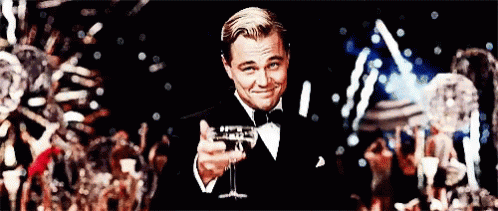Choosing the right translator for your needs can be quite a daunting task, especially when you don’t work in the field. Acronyms, degrees, specialisations. What’s all that? And how does it affect you?
It is not the same to work with a trained translator than with just any ‘bilingual’. You know that, right? So let’s move past that discussion and dive right into how you can choose the right translator for you.

How to choose the right translator for you
Let’s start from the beginning. Where should you look for translators?
Referrals
Ask your network if they can recommend anyone they’ve worked with before and trust. For instance, most museums work with big agencies, so if you work in this industry you might get referred to one of them.
This can be good or bad, depending on your needs and on the way you like to work. But there’s definitely more options than always going for a big translation agencies.
Do a web search
Even if you’ve got a referral, you want to know who this person is!
If you haven’t got one, try searching for keywords in different ways, and use “quotation marks” to get the exact words you’re looking for.
For example, my website will come up in the first page of Google if you search “museum translation” or “translation for museums”, but it might not come up with other keywords. So vary your search to get the best results.
Don’t just trust the web
Having made it to the first page of Google, although exciting, doesn’t equal quality. It just means you’re either a big company with money to invest in SEO or someone who blogs regularly using the right keywords. But that’s not enough, is it?
Mix it up!
Get a few names off the Internet, and then combine your results with the following tips!
Pick the right translator for you!
1. Take advantage of LinkedIn
LinkedIn is a wonderful platform which is seeing a huge increase in activity lately. So if you’ve got 1-2 names off the Internet or someone had recommended a couple of professionals, do check their profiles!
If you haven’t got any names yet, you can ask your LinkedIn network to recommend someone or make a search using this tool’s handy filters. Whenever you see something interesting, make sure you check out the person’s profile.
This is a more personal approach, as you can see exactly who is going to be working on your texts. Which is not an option with agencies (you won’t know which one of the hundreds of ‘vendors’ actually works on your content!).
2. Check profiles for:
✔️ TRAINING — As a general rule, look for trained translators. Minimum university education is key. “Bilingualism” isn’t enough, and it often results in disasters.
✔️ EXPERIENCE — A few years of practice in the translation industry should begin to ease your fears. Translation is a practical field, so you want people who have already had that practice.
I wouldn’t suggest going for a newbie, unless you have an in-house team with experienced linguists who will be able to check the translation for quality and accuracy.
✔️ EXPERTISE — Make sure they specialise in what you do. This is absolutely a MUST. It is particularly beneficial to work with translators who have formal training in the area, or certifications equivalent to those of the professionals in your field.
If you find someone who combines experience with expertise, then you’ve got yourself a winner?

Are you a translator? Then read these 5 reasons why specialisation is key for your business!
Other aspects to take into account
References
I’d take these with a pinch of salt. There are a few reasons why translators may not display a bunch of references on their profiles or websites.
For example, if they work with agencies, they won’t be able to mention any end clients for whom they work due to confidentiality agreements. Also as a policy many agencies do not provide references, so it makes it difficult to display references if you mostly work with agencies.
If a translator works with direct clients, they might not have asked the clients for references or maybe they did and the client forgot to write a review. Many clients find they don’t know what to say and they put it off, even if they’re happy with the results.
So, if everything else is a match, you might want to give the translator a chance!
Activity online
On this day and age, social media is (almost) everything, so it might be a good idea for you to check the translator’s social accounts to see what they say and how.
This allows you to ‘get to know the person’ a bit without even having to engage with them.
For example, I regularly post on LinkedIn and Instagram. On LinkedIn you’ll find I post a lot about my tribulations as a museum translator. This allows any potential customers to get to know me a bit before even contacting me. Isn’t that great?
I think social media provides a good platform for translators to engage with professionals from other fields, to raise awareness and have interesting exchanges.
So don’t forget to check your LinkedIn to find the right translator for your needs. And, if you’re into museums, check out my profile, and follow/add if you want to read more!

